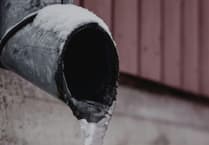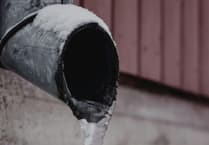PRAWLE Point Coastwatch has awarded long service certificates to eight of its watchkeepers, who between them have clocked up 100 years of service.
Prawle Point Watchstation stands 200 feet above sea level at the most southerly point in Devon, not far from the village of East Prawle.
As part of the National Coastwatch Institution, it is manned by volunteers who maintain a watch for emergencies at sea and provide a contact point for emergencies on shore.
Watchkeepers are the eyes and ears along the coast, keeping a visual watch, monitoring radio channels, using radar and providing a listening watch in poor visibility.A log is maintained of all identified vessels, noting bearing, distance and heading. The work is mainly routine but watchkeepers are trained to act in an emergency, report to the Maritime and Coastguard Agency and if required, co-ordinate with the search and rescue services.In addition to incidents at sea, this includes potential emergencies involving the many walkers who use the coast path which passes close to the station.Jon Gifford OBE presented certificates to Terry Martins, Rob Roberts, Colin Small and Hugh Stanley for 15 years service. And to Lesley Austin, David Hemming, Malcolm Waite and Chris Wood for 10 years service.
Also, Mark Jennings was given a plaque in recognition of five years service as facilities manager.
The awards ceremony was held as part of the Coastwatch’s AGM, and the meeting was attended by NCI Chairman of the Trustees Alan Richards.
In answer to questions about the way in which NCI is regarded by HM Coastguard, Alan Richards said that he was in no doubt that NCI was regarded by HM Coastguard as a valuable member of the national search and rescue operation.
He referred to a letter which Sir Alan Massey, the chief executive of the Maritime and Coastguard Agency, had written to another government agency.
In that letter Sir Alan described NCI as a serious, well led and assiduously managed organisation which makes a very substantial contribution to maritime and coastal safety around the British Isles.
He went on to say that, as chief executive of the Maritime and Coastguard Agency, he had an intimate understanding of the largely unsung work of NCI and he was in no doubt as to the value of the skill, experience and remarkable devotion to duty that they bring. He concluded by saying that he and his colleagues in MCA had the utmost respect for the NCI’s capability and especially their professionalism in support of public safety and well-being. He made it clear that he was in no doubt that NCI makes a positive difference to the shared quest with MCA to keep the public safe at sea and on the coast.
Watchkeeping at Prawle Point involves a wide network with over 60 volunteers. Watches are four hours long, usually dual-manned and running 365 days a year during daylight hours.
Watchkeepers pay for their own uniform and transport, and receive the satisfaction of knowing they provide an important service to seafarers, especially those in small craft, fishermen, divers, coastal walkers, runners and even farmers when livestock are in danger.The station is totally dependent on the generosity of individuals, companies and other organisations for funding.
Further information can be found at their website www.nci-prawlepoint.org.uk.





Comments
This article has no comments yet. Be the first to leave a comment.